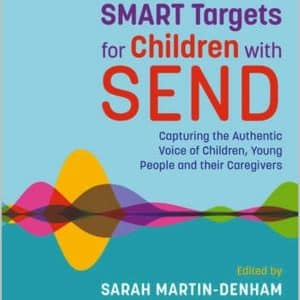Why It’s Vital to Screen for Language Difficulties: A Heartfelt Message to SENCOs
By Speech and Language Link

Dear SENCOs,
I’m sure that you, like us, have thought about how crucial talking and understanding is in our lives. Language is at the heart of our ability to communicate, learn, and interact with the world around us. In our world of special educational needs, where every pupil is unique, focusing on oral language can have significant benefits.
Here’s why SENCOs should put screening for language difficulties at the top of their priority list:
1. Early Detection and Intervention
We’ve all seen it, haven’t we? Catching a need early makes a world of difference.
Early intervention should be thought about at any age, and the emphasis should be on supporting pupils as soon as difficulties are noticed. Screening for language difficulties early allows for the identification of issues before they become more entrenched. This then leads to timely intervention, and as such therapy or educational strategies will be more effective. Pupils who receive support earlier on often experience significant improvements in their language abilities, setting a solid foundation for future learning.
2. Targeted Support
Not all language difficulties are the same, and no two pupils are alike. By universally screening for language needs, teachers and SENCOs can pick up on those pupils who otherwise go unnoticed. Importantly, difficulties with receptive language are not possible to detect with classroom observation alone. Robust screening can lead to targeted, evidenced interventions and support, so time and resources are channelled effectively.
3. Boosting Academic Success
Verbal language is a key to unlocking the curriculum and forms the foundation of other skills, including literacy. From reading comprehension to participation in classroom discussions, language abilities directly impact a pupil’s academic performance. By giving language the attention it deserves, we’re setting up our pupils for success in the classroom and beyond.
4. Building Confidence, One Word at a Time
Pupils who struggle with language often experience frustration and a lack of confidence in the classroom and their social environment. By providing targeted support and interventions, SENCOs can help them develop the skills they need to communicate effectively. Building these skills enhances self-esteem. It isn’t just about school; it’s a matter of self-esteem, confidence, and connection. It’s helping our pupils find their voice and place in the world.
Conclusion: A Shared Responsibility
We’re in this together, and we all know that our role in screening for language difficulties goes beyond paperwork. It’s a commitment to understanding, compassion, and decisive action. Recognising the potential in every child, we ensure that no one is left behind.
Screening for language difficulties is not just a box to tick; it’s a vital step in ensuring that every pupil has the opportunity to reach their full potential. The process requires forethought, resources and time for planning, screening and following through with next steps.
The rewards, however, are immense.
Choosing to screen for language difficulties is an investment in the future of each pupil, promoting inclusivity, individual growth, and a lifelong love of learning. Your efforts in this area build bridges, break down barriers, and foster an educational environment where every pupil has the chance to shine.
Our award-winning Language Link is an online assessment and intervention package enabling schools to identify and provide timely support for children with language difficulties. Suitable for children aged 4 to 14 years, it combines standardised assessment, built-in training, planned and resourced interventions, progress tracking, and dynamic reporting. Children make an average of 5 months’ extra progress after an average of 12 weeks of half-hour group sessions, following the Language Link programme.
Visit https://speechandlanguage.info/ for more information and book a free trial.
Best regards,
Speech and Language Link
helpdesk@speechlink.co.uk
P.S. Reach out if you want to chat more about this or anything else on your mind. We’re in this together!

Yin Collighan
Specialist Speech and Language Therapist
Specialist Paediatric Speech and Language Therapist working for Speech and Language Link, with over 10 years of experience working across mainstream and specialist schools. Yin has led service-wide time-critical projects and successfully managed small teams to achieve positive outcomes for children with speech, language and communication needs (SLCN).













